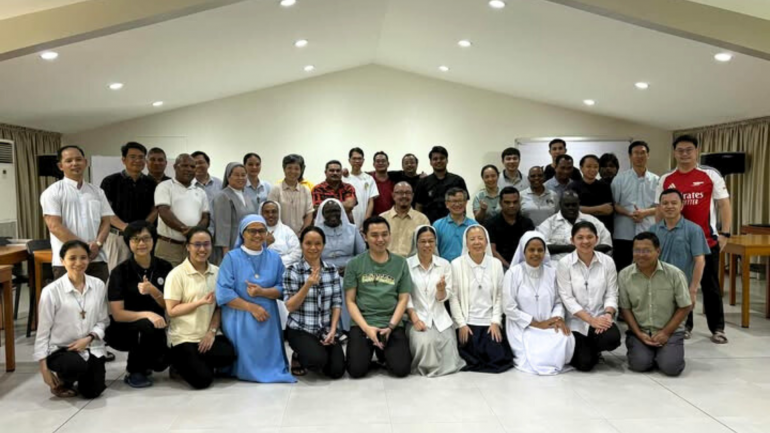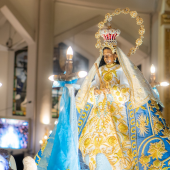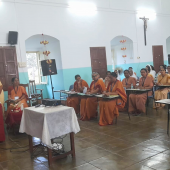East Asian Pastoral Institute forms Asian leaders for a mission-driven Church

The Pastoral Leadership and Management for Mission (PLMM) program of the East Asian Pastoral Institute (EAPI) in Manila, Philippines, continues to build bridges across cultures and continents.
The EAPI is a Jesuit-run residential pastoral institute for renewal, updating, sabbatical, and leadership training on the Ateneo de Manila University campus.
Gathering 42 pastoral leaders from Kenya, Myanmar, South Sudan, China, Hong Kong, Vietnam, Bangladesh, Tonga, India, Uganda, the Solomon Islands, Laos, South Korea, the Philippines, and Samoa, the program reflects the universal character of the Church and its shared commitment to mission.
At the heart of PLMM is a bold vision to enhance the leadership and management capacities of pastoral agents while deepening their spiritual and personal development.
As a six-month residential program, it responds to the urgent demands of the contemporary Church, a Church increasingly challenged by social injustice, ecological breakdown, economic inequality, and cultural fragmentation.
Stewardship and Resource Development responds to today’s mission.
One of the final modules of the program focused on stewardship, resource development, and project proposal writing and was held from June 23 to 27. This session brought together theological insight and practical skill-building, led by two seasoned resource individuals.
Jose Luis Clemente, executive secretary of the Catholic Bishops’ Conference of the Philippines, Office on Stewardship, guided the sessions on stewardship.
Ms. Bembet Madrid conducted the workshop on project proposal writing and resource development.
Together, they offered a holistic formation: connecting interior renewal with pastoral planning and grounding missionary passion in strategic action.
Stewardship as a way of life is a call to mission.
Clemente introduced a mission-centred vision of stewardship that went far beyond financial resource management. Drawing deeply from Scripture, Catholic Social Teaching, and pastoral realities, he challenged the participants to reclaim stewardship as a spiritual identity and prophetic lifestyle.
Framed through the Integral Renewal Model, his sessions followed three interwoven movements:
Awaken the Heart: rediscovering that one is a steward, not an owner.
“Everything we have—our time, talents, and treasure—is entrusted to us by God for the sake of others. This is not just about responsibility but about vocation,” said Clemente.
The speaker discussed a paradigm shift in one's perspective of the Church and the world, emphasizing the importance of renewing one's mind.
Clemente addressed key contemporary crises—consumerism, ecological degradation, poverty, and cultural division, urging the Church to move from maintenance to mission, from self-focused to globally engaged and prophetically active.
Clemente called for action by encouraging real-world action through community-rooted, Gospel-based initiatives.
The call to stewardship becomes concrete in projects that promote ecological care, justice for the poor, and solidarity across boundaries.
In a world obsessed with power, control, and wealth, Clemente invited participants to lead with humility, serving with love, and stewarding not just resources but the very mission of the Church.
Building on this spiritual foundation, Ms. Madrid’s sessions provided the practical tools to turn passion into programs. Participants were guided through designing project proposals, from identifying local needs and setting objectives to crafting measurable outcomes and preparing funding plans.
By integrating spiritual vision with pastoral action and rooting both in a spirit of stewardship, the PLMM program equips leaders to become agents of transformation in their parishes, dioceses, and mission territories.
At EAPI, the Church’s future is shaped by servant leaders who walk humbly, think critically, and act boldly in love.
Radio Veritas Asia (RVA), a media platform of the Catholic Church, aims to share Christ. RVA started in 1969 as a continental Catholic radio station to serve Asian countries in their respective local language, thus earning the tag “the Voice of Asian Christianity.” Responding to the emerging context, RVA embraced media platforms to connect with the global Asian audience via its 21 language websites and various social media platforms.














